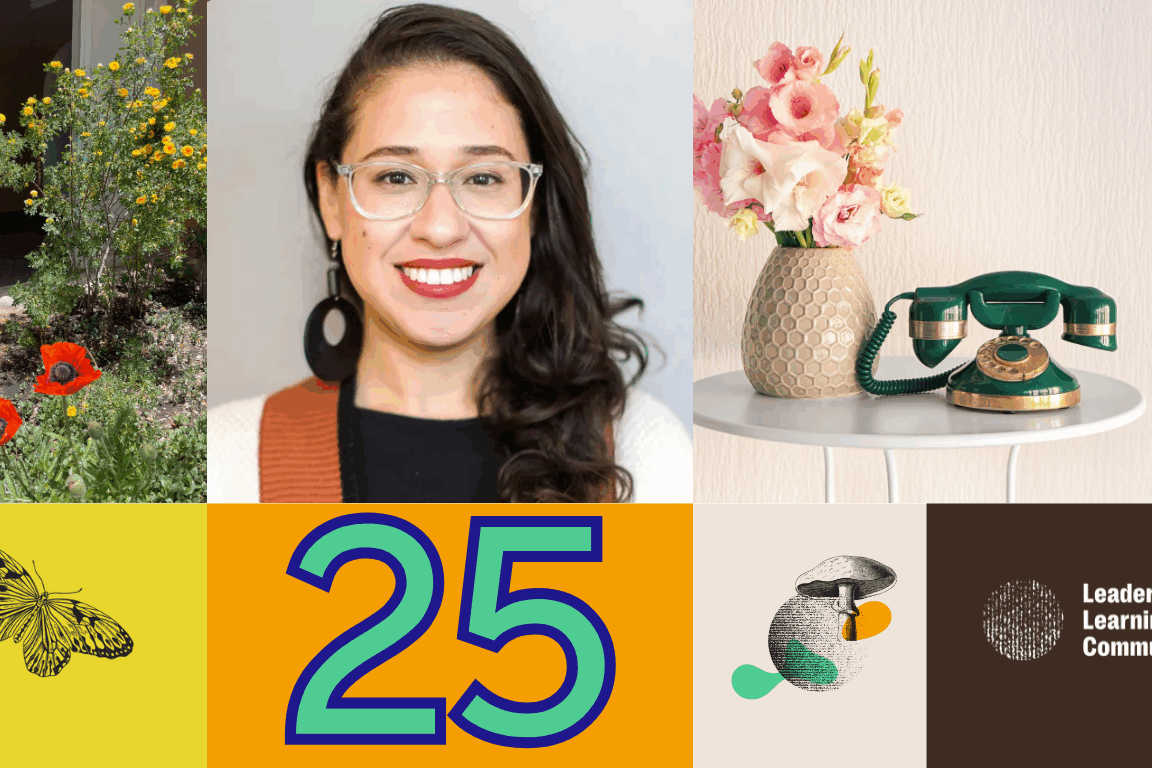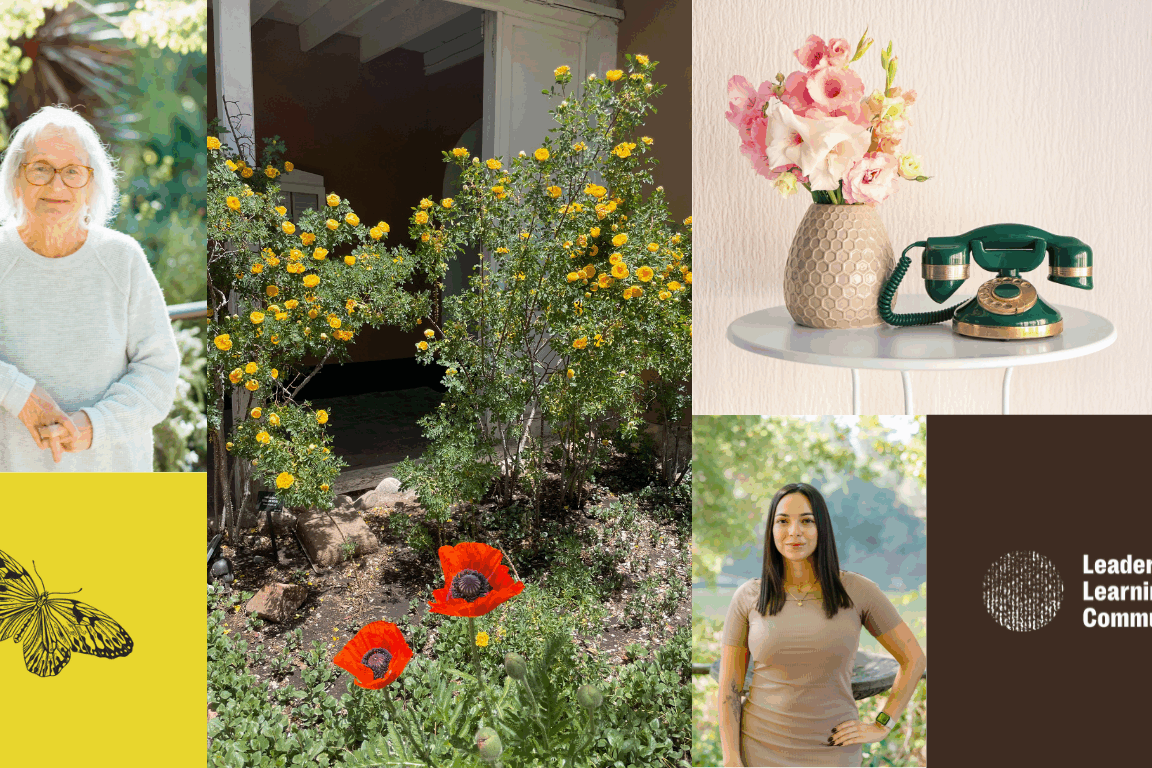To celebrate our 25th anniversary, LLC is hosting a special series of conversations with our friends and colleagues. These interviews honor our journey, lift up the essence of who we are, and reflect on the meaningful relationships and work that have shaped LLC over the past 25 years.
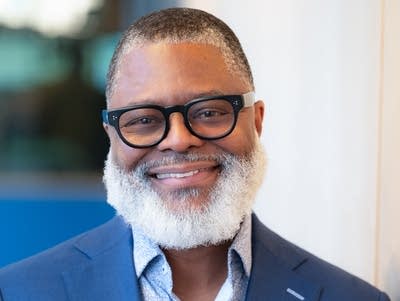
Ericka Stallings: Could you tell us a little bit about yourself and your involvement with the Leadership Learning Community?
Duchesne Drew: I’m one of the co-chairs for the LLC’s Advisory Board. I’ve been on the board since 2018. But my involvement with LLC began when I went to a meeting in the Bay Area around 2015 where we were doing a bunch of things, including some network mapping and some community-building work. And I met Deborah Meehan there. I was just impressed by her, and how she moved in the room, and just kind of came away really grateful for the time. So I allowed her to pull me onto the board in 2018, when I had some bandwidth to take on the responsibilities of doing so, and it’s been a real blessing. I feel like I’ve grown a lot as a leader, as a partner in work, not just at LLC’s table, but in other spaces, and I have a much better sense of both the gifts and the challenges that are out there in the social sector field. LLC has done a tremendous job of being a support for people doing hard things, both in terms of skill building but also in terms of relationship building and giving people a sense that they’re not in this work alone. It’s incredibly valuable.
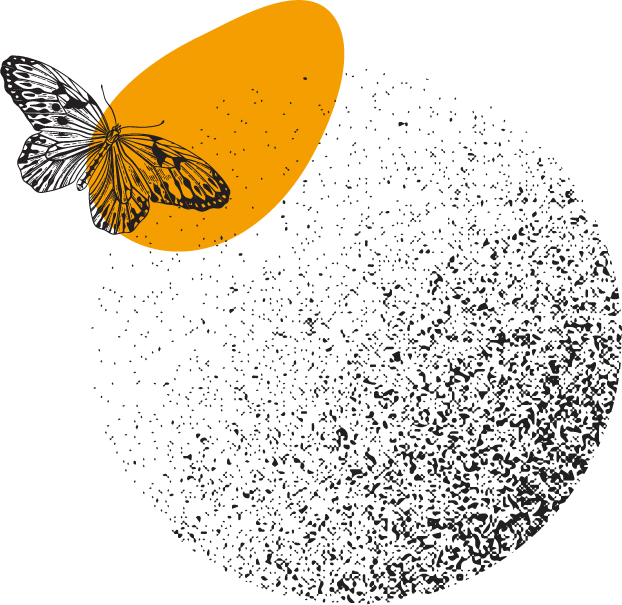
"It's as simple as the intentionality of the way LLC sets the table when you're about to enter into a space, just to remind people to pause for a minute, take a deep breath, come and step in when they're ready, step in as their authentic selves"
- Duchesne Drew
Ericka Stallings: Thank you. What is something that you’ve learned from LLC?
Duchesne Drew: I think I’ve learned a lot. It’s as simple as the intentionality of the way LLC sets the table when you’re about to enter into a space, just to remind people to pause for a minute, take a deep breath, come and step in when they’re ready, step in as their authentic selves. I just think that that doesn’t happen in enough spaces. From the beginning that you know you take care of yourself, and be your true self as you enter into work with LLC.
And the other lessons that come across in multiple ways are, LLC does a tremendous job of creating spaces where a wide range of people can come together to build relationships and to do work together. And it doesn’t require everyone to have the same base of knowledge or the same perspectives. To do big, hard things right is to create spaces where a perspective or a wider range of perspectives are present for us to come up with more resilient, durable, and impactful solutions to things.
Ericka Stallings: Thank you. So the first time you met LLC was in 2015, it’s been ten years. What’s been the shift or evolution that you’ve seen?
Duchesne Drew: Multiple. Part of it is the co-leadership model. What I appreciated about it was the idea that the organization would be stronger and more resilient in many respects if we could be structured in a way that took advantage of different perspectives and different skills, and broader networks, but also acknowledged that this is really hard work. So how do we do it in a way that isn’t going to burn people out?
I thought that it was valuable to acknowledge that so many roles are, frankly, built in ways that are not sustainable. And so, having that as a goal, as an intention. Even though it [co-leadership] wasn’t the typical approach, especially not for the most senior roles. Seeing people job share for roles that aren’t as critical to the health of an organization is way more common than seeing people at the top job share roles and responsibilities. So, I think that was an important piece of the evolution, because it was a concept, and then LLC actually did it and did it well.
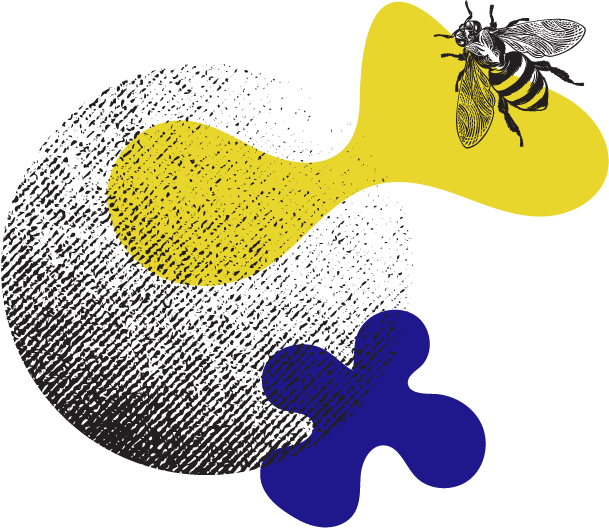
Ericka Stallings: Can you share a moment, program, or relationship from your time with LLC that really stayed with you?
Duchesne Drew: I remember we did a retreat in Philadelphia early in my time, and for me it was very powerful, because I didn’t know the other members of the Board or Deborah very well. But the value of time together is very important and necessary to connect, since most of the work we’re going to do is on screen and through emails. It feels different to be in person; you get to experience in an even deeper way the beauty of the people you get to work with.
Also, during the heart of the pandemic, I was deeply appreciative of the space that you guys created for leaders to just be able to get on a call together and feel seen and supported, and not alone. I think it was critical because so many people during the heart of the pandemic were isolated, and were just in need of a safe space to jump into, even if it was a virtual one. Frankly, back then, most spaces that felt safe were virtual. So just deeply appreciative that you guys recognize the need and pivoted.
Ericka Stallings: That’s often part of nonprofit life: having to make things work due to resource scarcity. What was particularly valuable for me was the ability to approach that from a more abundant mindset. It wasn’t a matter of, ‘Oh, we have to make this pivot,’ or merely responding to a problem. Instead, it became about maximizing potential: ‘How can this be even better?’ That’s the essence of the pivot: ‘How can we be more responsive?’ This is something I deeply appreciate.
"And I think liberatory leadership, and the way I have experienced it with LLC’s approach, is it brings more of an abundance sort of framing, which is that there are great ideas and perspectives across the entire circle, not just in one or two roles"
- Duchesne Drew
Ericka Stallings: LLC, since about 2020, has been talking about liberatory leadership. And I think for a lot of people, hearing the words is like, Oh, I like leadership that’s liberatory, I like liberation and leadership, those sound like good things. But when you hear those words like, What does that mean to you? And how do you see it in action?
Duchesne Drew: Yeah, it means a lot of things to me. Part of it is thinking about it through an equitable lens. I mean, so often, leadership is using the context of one or very few people who have power, responsibility, and authority. And I think liberatory leadership, and the way I have experienced it with LLC’s approach, is it brings more of an abundance sort of framing, which is that there are great ideas and perspectives across the entire circle, not just in one or two roles. So how do we — even though in the end there may be moments where one person’s got to decide — how do we lead in ways and work together in ways that bring out the best ideas, questions, concerns, and potential of everyone? In a way that creates an environment where people feel like they’re responsible, and they can contribute, no matter what chair they’re in. And that we can lead in ways that not just create space for other people to offer up their perspectives, but that encourage them to do so.
There’s a difference between “Chime in, if you want to say something,” versus, “I’d love to know what you think.” And recognizing that different people are gonna have different levels of responsibility and certainly expertise. But we can lead and work together in ways that create a shared sense of possibility and a shared sense of ownership in a good way, like investment, commitment, and agency.
Commitment is also important because we’re not doing things in such a hierarchical fashion, and we’re actively working to create an environment that people want to contribute to in ways that are meaningful to them, and they’re growing in ways that are meaningful to them.
And it doesn’t mean everybody always gets their way. That’s pretty much impossible, but the air in the room is good air to breathe, and the decision-making process makes sense. The decisions made are sound, and the processes used are designed to tap into the collective knowledge, passions, curiosities, questions, and concerns.
Ericka Stallings: It’s important for me that liberatory leadership is about liberation. And you know, sometimes we use the phrase, “there are many ways to Nirvana, and there are many ways to liberation.” And so why wouldn’t we want to hear all the different routes that people might have to get there? So, I think the distributed leadership and shared leadership have been an essential component of the liberatory leadership for LLC.
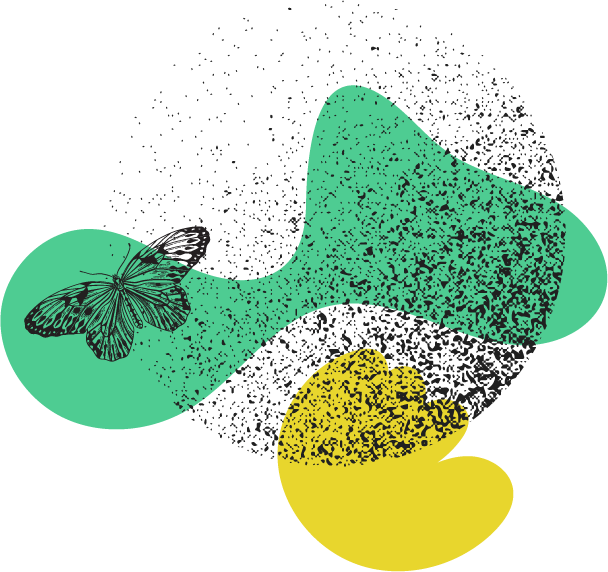
Ericka Stallings: And my last question for you is. What hopes and dreams do you have for LLC in the future?
Duchesne Drew: I hope that LLC will continue to infuse itself into the ways leaders and organizations think about how they lead, how they build relationships and partnerships, how they invest, and how they show up.
I’m always grateful for time with you guys because of how we use it. It’s both the vibe in the space and the actual work that we’re engaged in doing together. And so I would hope that LLC, in the next 25 years, continues to help leaders and organizations set the right tone, bring the right intentions to spaces, and create healthy, respectful, and liberatory relationships.
Related Posts
February 23, 2026
Trusting in a claw machine
October 23, 2025
A Journey of Books: Celebrating 25 Years of LLC
October 23, 2025
Calls to Each Other: Krystal Portalatin-Gauthier
September 26, 2025
